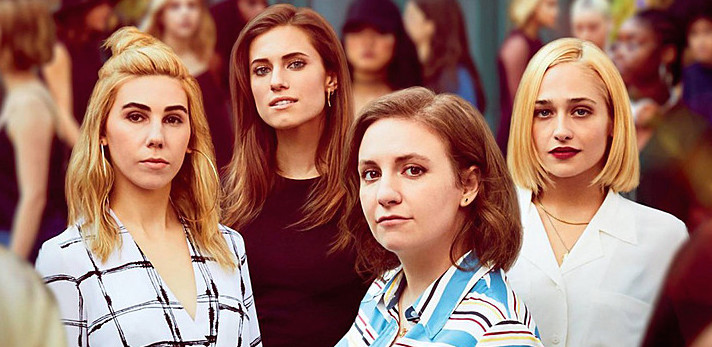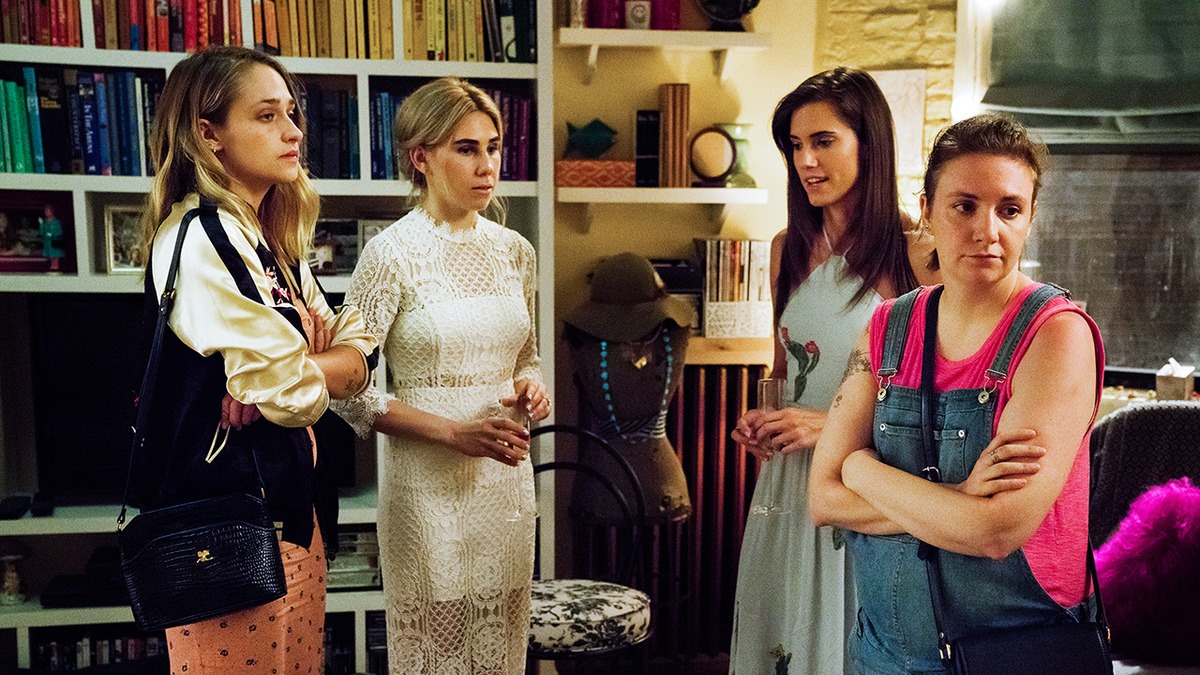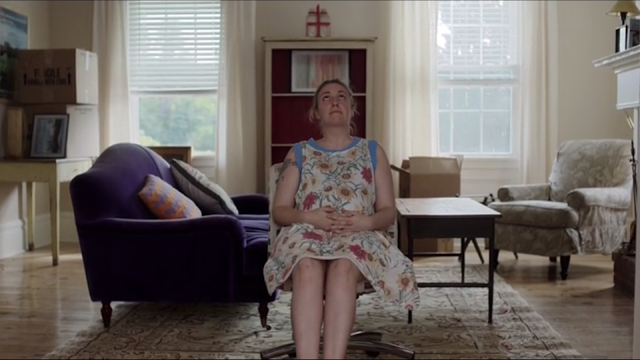by Chris Feil
This Sunday HBO ended the six season run of Girls, Lena Dunham’s caustic and compassionate take on millennial Brooklynites. The series ended much as it began: with a wide range of qualitative opinions, as frustrating as it was rife with conversation points, uneven but special.

The final season was its the choppiest since its earliest days, often one of its more unsatisfying. After seeming primed to get her shit together at the end of season five, that charged feeling of a new life chapter was delivered in the unexpected form of Hannah’s pregnancy. Marnie was running out of gas as her divorce finalized and her music career was on its most pathetic last legs. Elijah inched closer to Broadway. Jessa took a backseat as a villain without much of a story, and Shoshana was barely there at all, even less than usual. Despite its comic stride holding up from the previous season, this season’s form felt sloppy and scattered despite Hannah’s long-game story arc.
But this season was however one of its boldest leaps of faith yet. Hannah’s pregnancy wasn’t so much of Girls’s “jump the shark” moment because it followed the same immature irrationality that Hannah has always carried with her. And as usual, Hannah tries to pass this off as maturity. The question of whether or not this was *the* changing moment was a question that lingered all season, and smartly.
Do we sometimes become a ghost in our lives, like Jessa? Do we gradually step away from destructive forces in our life and they don’t notice until you’ve completely written them off, as Shoshana does? What if there’s never a wake up call, or too many too count, like Marnie? A better question is: how do you portray those struggles in a way that’s honest and not preachy, and often very very funny?

Now that it’s gone, I don’t see any show on television that takes the creative risks that Girls did - embodying the wrong side of controversial arguments, trusting the audience’s relationship with deeply flawed characters, even narrative risks it took it that may not have made much sense afterwards. At the show’s worst, it always felt alive. It was always in transition just like its subject, accepting its mistakes along the way.
That’s not to say that a sucky episode or clunky moment was intentional or wise on Girls’s part. Like any other show, not every episode can or should be a knockout. There’s the murky terrain of embodying Hannah’s privilege (her functional use of people of color this season were the worst, and her luck with inexplicable jobs is a justified point of anger in the audience) without explicitly condemning it, that still needed more clarity of intention to pull off what I think it was getting at.
I think we’ll otherwise remember the show for its intent behind its mistakes - once the lightning rods and controversies are forgotten, at least. And provided Dunham doesn’t continue to put her foot in her mouth now that she’s not channelling Hannah. Though I think this season was her best acting work yet, an impossible high wire act in the overall arc and in tiny moments, and the best thing about that distancing finale. If we should be bringing Girls back into the Emmy fold, her work is worthy.

Compared to other shows, this end was able to play into our need for audience closure and its own less definitive ambitions. There’s honesty in the ambiguous, more unfinished stories within ensemble, but there’s something a little honest too in the more pat happy endings of the likes of Ray or Shoshana or Elijah. It reads like the kind of friend we can project an entire lifetime of happiness onto just because of where we ended with them. I’m with the camp that was negative on the finale itself, though I admire how removed it feels from the rest of the season and what that might mean for Hannah and Marnie.
In some ways, Girls has always been subconsciously confusing to the audience for how much it loves and accepts its fuckup characters when we might have cut them out of our lives. The exasperation we feel with them is the same we feel with our own embarrassing mistakes. By extension, maybe it loved us where we found ourselves unlovable.
Girls made a mess of your social media feeds, took even a tiny bit of a win for body representation, and it made you care about these people who made mostly bad decisions. You may be glad it’s gone already, but no comedy on television is as worthwhile in its divisiveness. It may not have been a flawless sendoff, but I’ll miss this scrappy, smart, frustrating fuckup of a show.